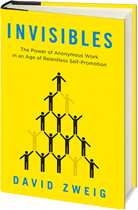
I had the honor recently of talking with UC Santa Cruz sociologist, Andrew Szasz. His book Shopping Our Way to Safety: How We Changed from Protecting the Environment to Protecting Ourselves is a few years old but still as relevant as ever. From the book description:
Many Americans today rightly fear that they are constantly exposed to dangerous toxins in their immediate environment: tap water is contaminated with chemicals; foods contain pesticide residues, hormones, and antibiotics; even the air we breathe, outside and indoors, carries invisible poisons. Yet we have responded not by pushing for governmental regulation, but instead by shopping.
“It’s a peculiar form of environmentalism in which people recognize the problem but have given up on any hope of collective improvement,” said Szasz in the UC Santa Cruz Review magazine. “Consumers believe these products will protect them, which creates a kind of political ‘anesthesia’ that severely reduces their willingness to participate in collective political action to generate real change.”
Related to the book’s premise, I’m reminded of after 9/11 when President Bush told everyone to simply “go shopping” as a response to the attacks. The ethos today seems to be that although our hyper consumerism is the cause of much of our ills, it also is the best, or only solution. It’s as if we’re inside a tunnel and we can’t see that there are other options besides simply consuming stuff (even “good” stuff) for how to function – politically, personally, socially – anymore.

